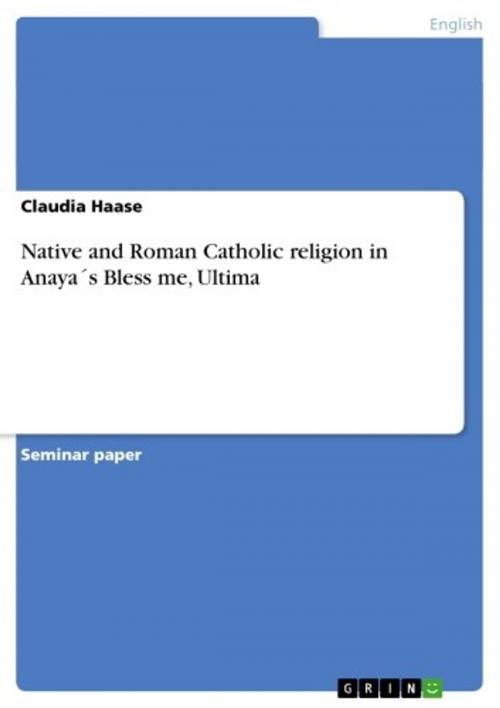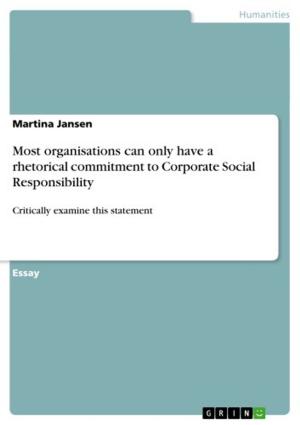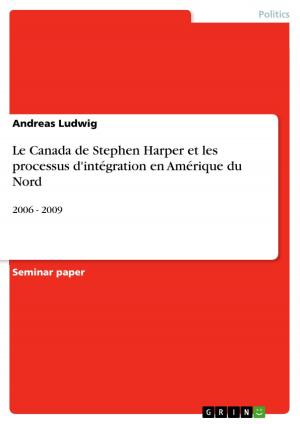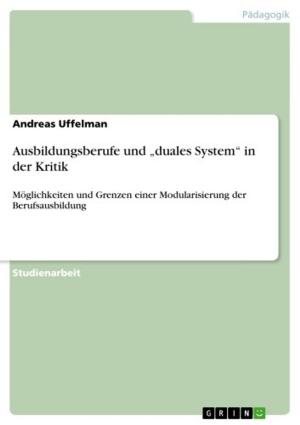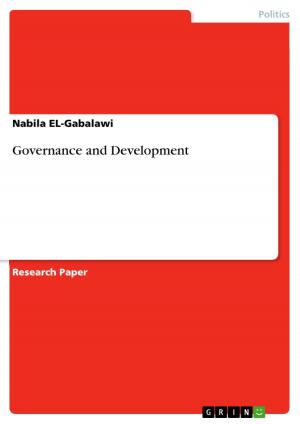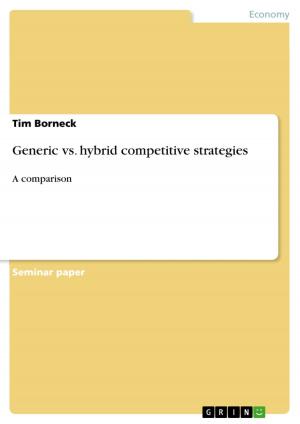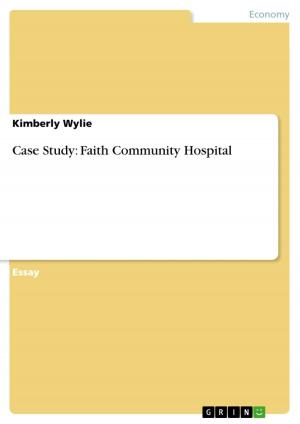Native and Roman Catholic religion in Anaya´s Bless me, Ultima
Nonfiction, Entertainment, Drama, Anthologies| Author: | Claudia Haase | ISBN: | 9783638364119 |
| Publisher: | GRIN Publishing | Publication: | April 9, 2005 |
| Imprint: | GRIN Publishing | Language: | English |
| Author: | Claudia Haase |
| ISBN: | 9783638364119 |
| Publisher: | GRIN Publishing |
| Publication: | April 9, 2005 |
| Imprint: | GRIN Publishing |
| Language: | English |
Seminar paper from the year 1999 in the subject American Studies - Literature, grade: 1,0/A, University of Dusseldorf 'Heinrich Heine' (Anglistik II, Amerikastudien), course: Latino/a Literature, 7 entries in the bibliography, language: English, abstract: In the following paper I want to examine the traits of Native and Roman Catholic religion described in Rudolfo Anaya`s novel Bless me, Ultima1, which was first published by TQS Publications, Berkeley, California in 1972. It shall be revealed how the different characters in the novel deal with the Mexican pagan past and the Roman Catholic influences which affect and determine their lives. I chose to examine the most important persons separately, to stress the individuality of searching a way through the number of beliefs which are offered to each of us during our lives. Nevertheless the complexity of personal relations and their mutual influences are regarded as well; although a comprehensive analysis would also have been possible without splitting the story. According to the fact that every person is dealt with individually, the conclusion shall provide the reader with an overall picture of the relationships between the main characters in the novel. Native religion touches the region of curanderismo and witchcraft, which certainly is an interesting chapter, but has to be dealt with only as far as it is necessary. On the other hand there is Roman Catholic religion, which the Spanish under Hernan Cortés brought to America. One chapter is dedicated to The Virgin of Guadalupe, the patron saint of the Chicanos- the descendants of Indians and Spaniards. Bless me, Ultima as a work of the Mexican American author Rudolfo Anaya represents the religious opposites Mexican Americans have to deal with and it shall therefore serve as a source of examples to show the complexity of Chicano beliefs.
1991- 2006 Grundstudium Humanmedizin, Philosophie, Psychologie, Anglistik, Romanistik und Erziehungswissenschaften 2006 MA 2008 zweites Staatsexamen
Seminar paper from the year 1999 in the subject American Studies - Literature, grade: 1,0/A, University of Dusseldorf 'Heinrich Heine' (Anglistik II, Amerikastudien), course: Latino/a Literature, 7 entries in the bibliography, language: English, abstract: In the following paper I want to examine the traits of Native and Roman Catholic religion described in Rudolfo Anaya`s novel Bless me, Ultima1, which was first published by TQS Publications, Berkeley, California in 1972. It shall be revealed how the different characters in the novel deal with the Mexican pagan past and the Roman Catholic influences which affect and determine their lives. I chose to examine the most important persons separately, to stress the individuality of searching a way through the number of beliefs which are offered to each of us during our lives. Nevertheless the complexity of personal relations and their mutual influences are regarded as well; although a comprehensive analysis would also have been possible without splitting the story. According to the fact that every person is dealt with individually, the conclusion shall provide the reader with an overall picture of the relationships between the main characters in the novel. Native religion touches the region of curanderismo and witchcraft, which certainly is an interesting chapter, but has to be dealt with only as far as it is necessary. On the other hand there is Roman Catholic religion, which the Spanish under Hernan Cortés brought to America. One chapter is dedicated to The Virgin of Guadalupe, the patron saint of the Chicanos- the descendants of Indians and Spaniards. Bless me, Ultima as a work of the Mexican American author Rudolfo Anaya represents the religious opposites Mexican Americans have to deal with and it shall therefore serve as a source of examples to show the complexity of Chicano beliefs.
1991- 2006 Grundstudium Humanmedizin, Philosophie, Psychologie, Anglistik, Romanistik und Erziehungswissenschaften 2006 MA 2008 zweites Staatsexamen
